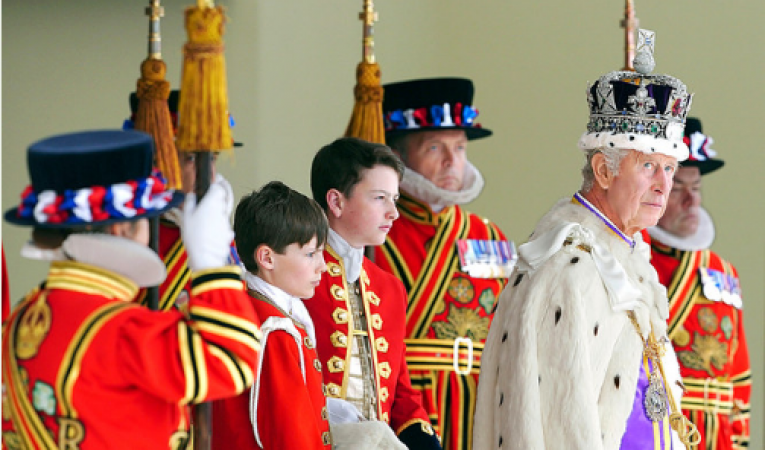
London: The dawn of King Charles III's reign signals a period that is anticipated to be characterized more by evolution than revolution within the British monarchy.
While the new king is firmly committed to upholding the rich traditions associated with the monarchy, he has also expressed openness to change and a desire to be a "contemporary" monarch. However, it is unlikely that he will pursue major changes that would disrupt the established order.
One of the central challenges facing King Charles III is the modernization of the monarchy, making it more relevant in the 21st century. Striking a balance between preserving tradition and adapting to a rapidly changing world will be paramount.
Also Read: Saudi-Indian Relations Forge Ahead with G20 Summit as Catalyst
Charles is also expected to grapple with the expectations of modern monarchy, which include increased transparency and public engagement. He has signaled a desire to be a "visible" monarch, taking on a more active role in representing the country both domestically and internationally.
However, the king is unlikely to wade into the realm of politics, emphasizing his desire to remain apolitical and impartial. His approach is anticipated to differ from that of his mother, Queen Elizabeth II, who maintained a strict neutrality on political matters.
Also Read: U.S. Unveils $600 Million Aid Package to Bolster Ukraine's Counteroffensive Efforts
Let's delve deeper into what distinguishes King Charles III's reign from that of his mother, Queen Elizabeth II:
Openness to Change: Charles is poised to be more receptive to change than Queen Elizabeth II. He has expressed his aspiration to be a "contemporary" monarch and has hinted at potential alterations to the monarchy's functioning.
Increased Public Engagement: Charles is likely to engage more actively with the public than his predecessor. His aim to be a "visible" monarch suggests a commitment to maintaining a strong connection with the people.
Potential Involvement in Politics: While he doesn't aspire to be a "political king," Charles may take a more pronounced interest in political affairs than Queen Elizabeth II, who maintained strict political neutrality.
Also Read: Twin Islamist Militant Attacks in Mali Claim Dozens of Lives, Highlight Ongoing Security Crisis
The changes that King Charles III introduces to the monarchy will be closely monitored and scrutinized by the British public. Expectations vary, with some hoping for significant modernization to make the monarchy more relevant to contemporary society, while others wish to see the preservation of tradition.
Charles III's reign is poised to be a period of transition and change for the British monarchy. How he navigates the delicate balance between tradition and modernization will shape the monarchy's role and relevance in the 21st century.